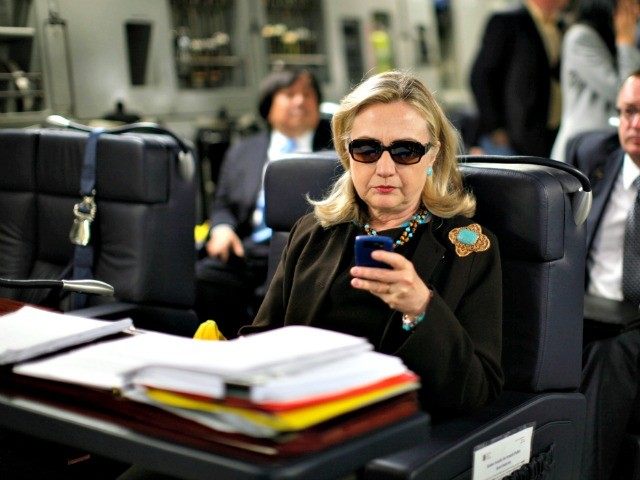In a speech laying out her economic policy, Hillary Clinton is set to attack companies like Uber and Airbnb in the “sharing economy” or “contractor economy,” arguing that such companies undercut wages. Her proposed alternative is to use government regulations to guide economic activity. Previews of her speech have set off alarm bells in Silicon Valley, and are sure to surprise millennial consumers, whose loyalty to the Democratic Party has has largely been blind, and who have presumed that the party of government shared their love for technology.
Politico’s Michael Grunwald delivered the preview of Clinton’s approach to the sharing economy:
Clinton’s aide said she will discuss some of the structural forces conspiring against sustainable wage growth, such as globalization, automation, and even consumer-friendly “sharing economy” firms like Uber and Airbnb that are creating new relationships between management and labor (and which now employ many Obama administration alumni). But she will argue that policy choices have contributed to the problem, and that she can fix it.
Josh Constine of TechCrunch sighed: “As if Uber needed more enemies.” And John Kartch of Forbes wrote:
Because her transportation is always taken care of, perhaps Clinton has never bothered to talk to an Uber or Lyft driver and therefore doesn’t understand that a flexible schedule is a top draw. Drivers take great pride in being their own boss. Making their own schedule allows drivers to balance family and work obligations. Drivers can take time to see their kid’s Little League game, visit the doctor, get groceries or go to a job interview.
Clinton’s expected assault on the sharing economy confirms that Big Labor is still the dominant force in left-wing politics. Democrats have targeted Uber and Airbnb with new regulations designed to protect entrenched monopolies, despite the value the new companies create for their customers.
The sharing economy has also lowered the cost of living for millennials who still crowd into Democrat-run cities. Attacking it means attacking them. Clinton’s approach therefore creates an opportunity for her Republican rivals to reach the elusive millennial vote.
As Breitbart News noted recently:
The entire “sharing” economy, which is at the heart of the new tech boom, is in danger. “Millennials” in their 20s and 30s, who rely on the new social networks to fulfill their basic needs–or to pay the rent–are suddenly realizing that government is something other than “the name we give to the things we choose to do together,” as former U.S. Rep. Barney Frank said. On the contrary, government is often the name we give to what one group of people does to another group by force of law.
In this case, the groups with their hands on the levers of power are special interests–especially unions–to which, ironically, millennials are aligned through their common support for the Democratic Party. Now, tech-savvy voters are rubbing their eyes and wondering how it is that the party that promised to reinvent government is, in fact, using government in the most old-fashioned of ways, destroying innovation and competition to protect the politically-connected donors who run things….
The crisis of the sharing economy has created a unique window of opportunity for conservative leaders to reach out to the millennial generation, which doesn’t know who it can trust anymore….Are there presidential candidates who can explain how the best of what is new can be reconciled with the best of what is old? And are there enough millennials yet ready to listen–to “disrupt” themselves?

COMMENTS
Please let us know if you're having issues with commenting.